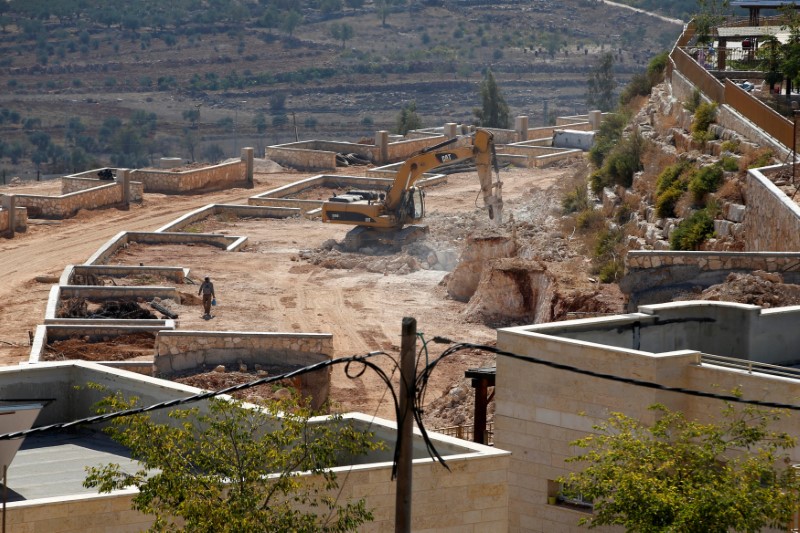
By Jeffrey Heller
JERUSALEM (Reuters) – The Jerusalem municipality is due to act on Wednesday on requests to construct hundreds of new homes for Israelis in areas that Israel captured in 1967 and annexed to the city, drawing fresh criticism from the United States that settlement activity puts Middle East peace-making at risk.
Israel is still fuming over the resolution approved last Friday by the United Nations Security Council that demands an end to settlement activity in the occupied West Bank and East Jerusalem.
U.S. State Department spokesman Mark Toner said he was aware of press reports about plans for more settlement building.
“We would hope that the U.N. Security Council resolution would serve as a wake-up call, a call to action, an attempt to alert both sides, but certainly Israel, that its actions with regards to settlement activity are a detriment to moving forward with a two-state solution,” Toner told a news briefing.
Israel described as “shameful” the decision by the United States to abstain in the vote rather than wield its veto. The Obama administration is a strong opponent of the settlements.
U.S. Secretary of State John Kerry is to make remarks on Wednesday regarding Middle East peace and discuss steps needed to resolve the Israeli-Palestinian conflict.
An agenda published by Jerusalem City Hall listed applications for at least 390 new homes whose approval looks certain to intensify international and Palestinian opposition to the Israeli settlement-building.
The Municipal Planning and Construction panel usually meets on Wednesdays; the permit requests were filed before the Security Council resolution.
Settler leaders and their supporters have been urging Prime Minister Benjamin Netanyahu to step up construction in East Jerusalem, accusing him of having slowed the pace last year because of international pressure.
Israel’s Haaretz newspaper reported on Tuesday that 1,506 housing units for Israelis have already been approved in East Jerusalem this year, compared with 395 in 2015.
The Jerusalem municipality said in a statement on Tuesday it would “continue to develop the capital according to zoning and building codes, without prejudice, for the benefit of all residents.”
Israel considers all of Jerusalem its united capital, a stance not supported by the international community. Palestinians want East Jerusalem as the capital of a state they seek to establish in the occupied West Bank and in the Gaza Strip.
Some 570,000 Israelis live in East Jerusalem and the West Bank, in settlements that most countries consider to be illegal and the United States terms illegitimate. Israel disputes that, citing historical, political and Biblical links to the areas, as well as security concerns.
The new U.N. resolution changes nothing on the ground between Israel and the Palestinians and will probably be all but ignored by the incoming U.S. administration of President-elect Donald Trump.
However, Israeli officials fear it could spur further Palestinian moves against Israel in international forums.
A U.S. official said after Friday’s vote that Washington’s decision to abstain was prompted mainly by concern that Israel would continue to accelerate settlement construction and put at risk a two-state solution of the conflict with the Palestinians.
The U.S.-backed peace talks have been stalled since 2014.
(Additional reporting by Ori Lewis in Jerusalem and Lesley Wroughton in Washington; Editing by Gareth Jones and Leslie Adler)



